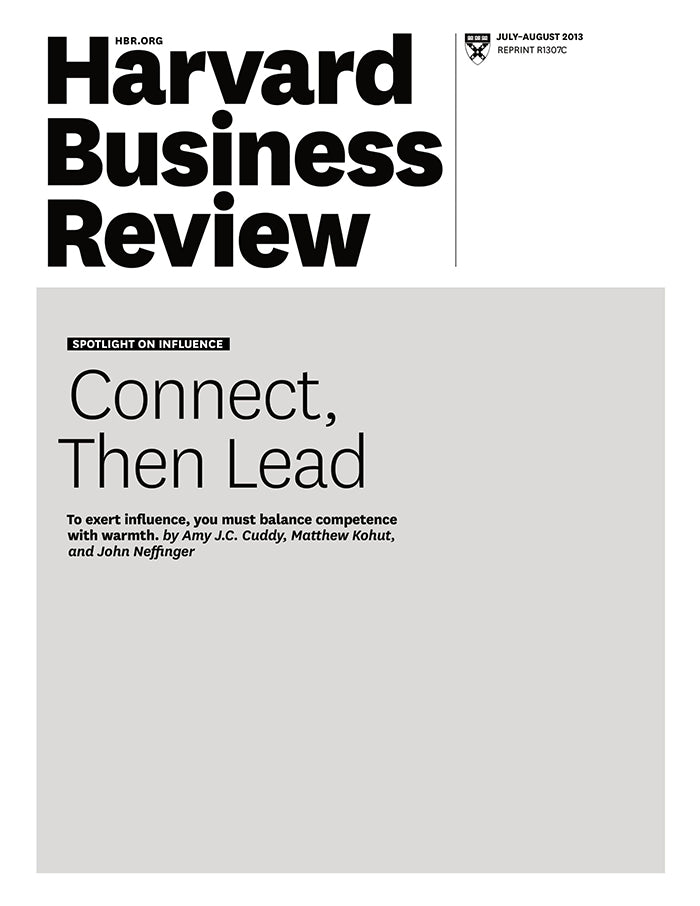Connect, Then Lead
受取状況を読み込めませんでした
In puzzling over whether it's better to be feared or loved as a leader, Machiavelli famously said that, because it's nigh impossible to do both, leaders should opt for fear. Research from Harvard Business School's Amy Cuddy and consultants Matthew Kohut and John Neffinger refutes that theory, arguing that leaders would do much better to begin with "love"--that is, to establish trust through warmth and understanding. Most leaders today approach their jobs by emphasizing competence, strength, and credentials. But without first building a foundation of trust, they run the risk of eliciting fear, resentment, or envy. Beginning with warmth allows trust to develop, facilitating both the exchange and the acceptance of ideas--people really hear your message and become open to it. Cultivating warmth and trust also boosts the quantity and quality of novel ideas that are produced. The best way to gain influence is to combine warmth and strength--as difficult as Machiavelli says that may be to do. In this article, the authors look at research from behavioral economics, social psychology, and other disciplines and offer practical tactics for leaders hoping to project a healthy amount of both qualities.
【書誌情報】
ページ数:9ページ
サイズ:A4
商品番号:HBSP-R1307C
発行日:2013/7/1
登録日:2013/7/8


